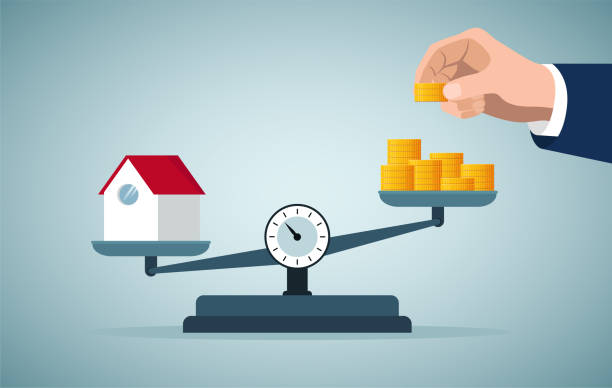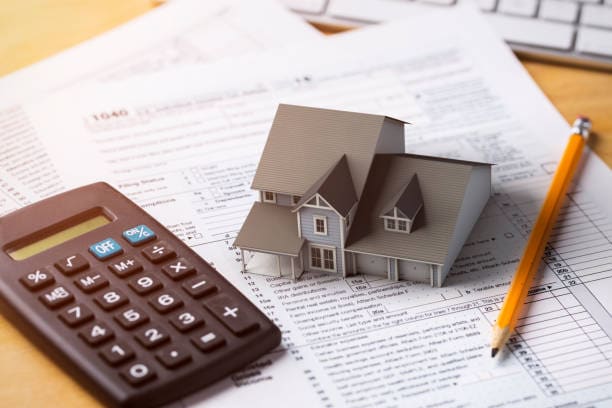Why do you need to know about mortgages on houses? Find out why through this article.
For many Australians, owning a home is more than just bricks and mortar – it’s a cornerstone of the national identity, a symbol of stability and success, and a gateway to wealth creation. Let’s delve into the significance of homeownership in Australia and explore how mortgaging can make this dream a reality.
A mortgage is a loan from a bank or lender that allows you to purchase a property by financing a portion of the purchase price. You gradually repay the loan, plus interest, over a set loan term, eventually owning the property outright.
What Is a Mortgage?
A mortgage in NSW, or any other state in Australia, is a loan agreement between a lender and a borrower used to purchase a residential property. The borrower uses the property as collateral and repays the loan in instalments over a set period of time, usually 20 to 30 years, with interest.
Once mortgaged, the mortgagee becomes the legal owner of the land and the mortgagor holds the equity of redemption. The time and date of registration of mortgages determines their priority, and a registered mortgage has priority over an unregistered mortgage.
The Moratorium Act 1932 defines mortgage as “any deed, memorandum of mortgage, instrument, or agreement whereby security for payment of money or for the performance of any contract is granted over real or personal property in New South Wales or any interest therein.
It includes an equitable mortgage by deposit of title deeds, and any document by which the duration of a mortgage is extended or by which any provision of the mortgage is varied, but shall not include—
- any charge or lien existing solely by reason of a banker’s lien under the law merchant,
- any charge or lien existing by virtue of any statute, deed of settlement, articles of association, or rules, over shares in a company or society incorporated by or under any statute, or by Royal Charter,
- any preferable lien on crops or wool,
- a hire-purchase agreement.”
A mortgagor is any individual entitled to redeem a mortgage or who has guaranteed the payment of any money.
The payment of which is secured by a mortgage or the performance of any:
- covenant,
- condition, or
- agreement
expressed or implied in a mortgage whether such guarantee is expressed in the mortgage or in any other instrument. On the other hand, a mortgagee is any person entitled to the benefit of the security of any mortgage.
Mortgages on Houses Benefits
The following list of benefits will answer the question of why you need to know about mortgages on houses and will help you make an informative decision with regard to getting a home in NSW:
- Ownership. Mortgages allow individuals to purchase residential properties and become homeowners. This provides a sense of security and stability, as well as the opportunity to build equity in the property.
- Leverage. Mortgages on houses enable individuals to leverage the equity in their homes to access funds for other investments or expenses. This can be a strategic way to use the value of real estate as a financial tool.
- Flexibility. It also offers flexibility in terms of repayment periods, interest rates, and home loan types. For example, borrowers can choose between fixed or variable interest rates, and they can opt for interest-only repayments or principal and interest repayments.
- Access to property. Property ownership is more accessible by allowing individuals to purchase properties that they may not be able to afford outright. Mortgages on houses help broaden homeownership and contribute to the overall growth of the economy.
- Stability. You will have a stable source of funding for property purchases, which can help to maintain the stability of the housing market. This is particularly important in times of economic uncertainty or market fluctuations.
- Tax incentives. Mortgage interest payments on residential properties are often tax-deductible, which can provide financial benefits to homeowners. Additionally, the Australian government offers various incentives for first-time homebuyers, such as the First Home Owners Grant (FHOG), to help them enter the property market.

Mortgages on Houses: Falling Behind Repayments
Mortgages on houses require timely repayments. If you have fallen behind with your mortgage repayments in NSW, you must take proactive steps to address the situation. Here are some general steps to consider:
Contact Your Lender
First, you must inform your lender about your situation as soon as possible. They may be able to offer assistance or provide alternative repayment arrangements.
Financial Counseling
Seek advice from a financial counselor who can help you assess your financial situation and provide guidance on the available options.
Government Assistance Programs
Inquire about government assistance programs that may be available to support homeowners who are struggling to meet their mortgage obligations.
Explore Refinancing or Loan Modification
Discuss the possibility of refinancing your mortgage or modifying the loan terms with your lender to make the repayments more manageable.
Understand Your Rights and Obligations
Familiarise yourself with the rights and obligations outlined in the mortgage contract and relevant state legislation to ensure you are aware of the potential consequences and available remedies. You might need to consult a lawyer for this.
Avoid Ignoring the Issue
Ignoring the problem can lead to more severe consequences, such as foreclosure. It’s essential to address the issue proactively and seek assistance when facing financial difficulties.
Mortgages on Houses: Repossession
If your lender obtains a warrant for possession, a sheriff may replace the locks and evict you from the property. To satisfy the judgment obligation, the lender will hold a public auction and sell the property. The lender will provide you with the leftover funds after the judgment debt and all associated costs have been settled.
Moreover, the lender may request payment from you if the proceeds from the sale of the property are insufficient to meet the judgment debt and associated costs. For a maximum of twelve years, the lender may enforce the judgment.
What is a Home Loan?
A home loan is a type of secured loan specifically used to finance the purchase or construction of a residential property. It’s typically provided by banks, mortgage lenders, or specialised brokers. The interest rate can be fixed for a set interest only period or fluctuate based on market conditions. Loan terms vary depending on the lender but usually span 15-30 years.
What can you use a Home Loan for?
Purchase: Buying a new or existing home, including apartments, townhouses, or even land to build on.
Refinance: Replacing an existing fixed rate mortgage with a new loan, potentially securing a lower interest rate or changing terms.
Key Features of Home Loans:
Monthly repayments: You make regular installments of principal and interest to pay back the loan.
Down payment: Lenders typically require a down payment of 10-20% of the property’s value, reducing your initial loan amount.
Security: Your home acts as collateral for the loan. If you default on payments, the lender can foreclose and take possession of the property.

Protect Your Investment
If you are facing mortgage difficulties and need legal assistance, consider hiring a lawyer to help you navigate the process and protect your rights. First, assess your financial situation and determine if you need legal assistance. We can assist with:
- Fixed rate loan and fixed rate loans
- Fixed rate mortgages
- Interest only loans
- Variable rate loans
- People borrowing money whether small or in large amounts
- Loan terms
- Requesting bank statements
- Helping with lodging modes of payment for loans and mortgages (yearly or monthly payment)
If you are unsure about your rights or believe your lender is violating the law, hiring a lawyer from JB Solicitors can be beneficial. Our competent lawyers can explain your rights and assist with any issues that may arise out of mortgages on houses.
Contact us today.
